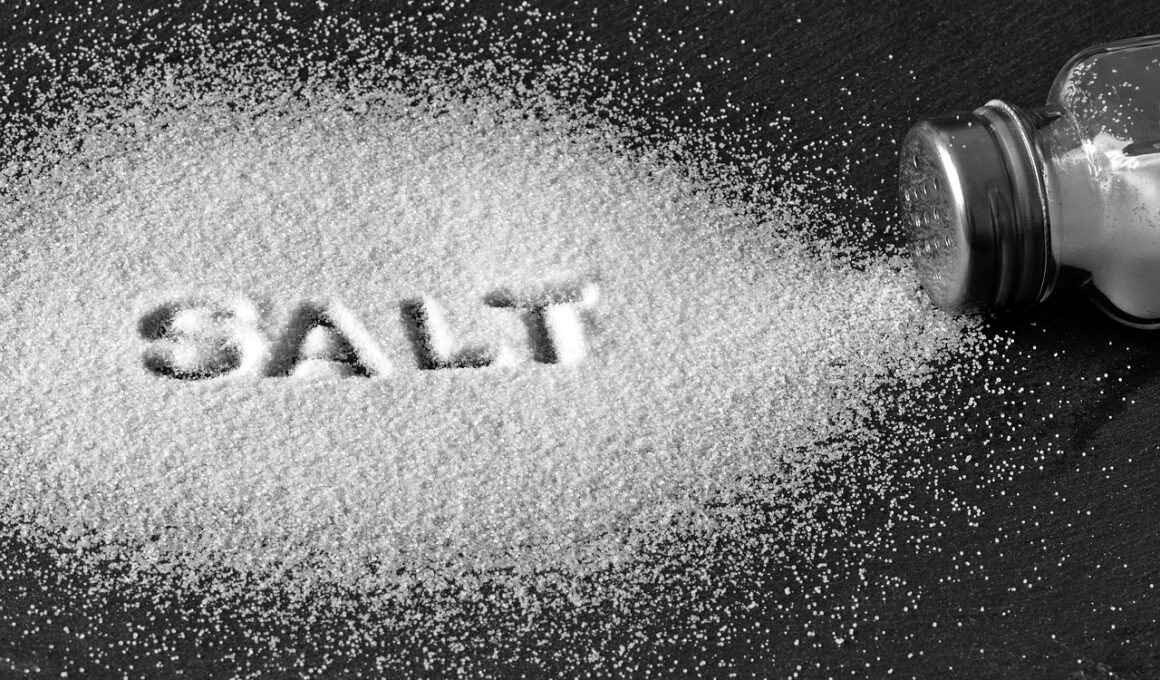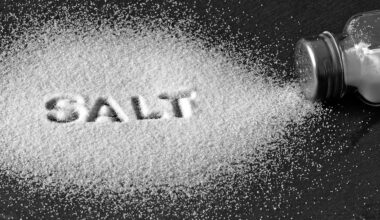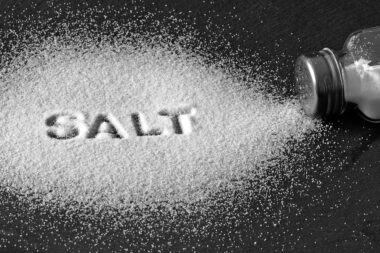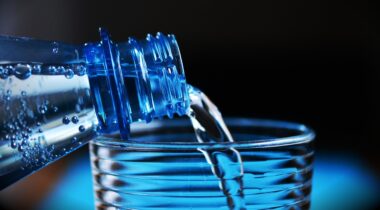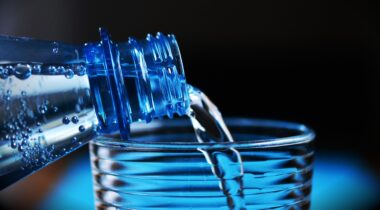The Impact of Salt and Water Intake on Kidney Function
The kidneys play a crucial role in maintaining the body’s electrolyte balance and overall hydration levels. They do this by filtering blood, removing waste, and managing the balance of fluids and salts. Water intake is essential for proper kidney function, and maintaining adequate hydration can help prevent kidney stones and other urinary tract issues. Without sufficient water, kidneys may struggle to eliminate toxins effectively, leading to an increased risk of kidney damage. Moreover, excessive salt intake can further complicate this process. High sodium levels draw water out of cells, causing the body to retain fluid and potentially leading to high blood pressure. Thus, balancing sodium and water intake is vital for promoting healthy kidney function. Both high salt intake and inadequate water consumption can strain the kidneys, emphasizing the importance of maintaining a proper diet and hydration strategy. Aim to drink enough water throughout the day, especially during hot weather or increased physical activity.
Effects of Salt on Kidney Function
High sodium intake can negatively impact kidney health in several ways. When you consume too much salt, your kidneys work harder to excrete the excess sodium, which can ultimately lead to kidney damage over time. The relationship between high salt intake and the development of chronic kidney disease (CKD) is well established, highlighting the need for individuals to limit their sodium consumption. Some studies have indicated that reducing salt intake can significantly lower the risk of kidney-related diseases. Furthermore, high sodium levels can lead to hypertension, a risk factor for kidney disease. It’s vital to read food labels and stay aware of hidden sources of sodium in processed and restaurant foods. Cultivating a habit of seasoning foods with herbs and spices rather than salt can help reduce overall sodium intake. Staying educated about dietary choices can empower individuals to make healthier decisions that support kidney health while balancing salt and water consumption for optimal hydration and functionality.
Water is essential for the kidneys to function correctly, as it supports detoxification and waste removal. Drinking adequate amounts of water helps the kidneys filter out waste products and excrete them through urine. This process is vital for reducing the risk of kidney stones, which can form when urine is concentrated, allowing minerals to crystallize. By staying properly hydrated, the likelihood of developing these painful stones is significantly decreased. Additionally, hydration promotes overall urinary health by preventing urinary tract infections, which can further compromise kidney function if left untreated. It’s generally recommended that individuals consume at least eight glasses of water a day, but needs can vary based on factors such as age, sex, physical activity, and climate. Ensure that hydration levels are monitored carefully, especially during periods of high exertion or heat. Employ strategies such as carrying a water bottle, setting reminders, or incorporating hydrating foods—like fruits and vegetables—into meals. Such practices help encourage greater water consumption.
Optimal Water Intake for Kidney Health
To maintain optimal kidney health, a balanced approach to water intake is essential. Recommendations often suggest that adult women should aim for about 2.7 liters and men about 3.7 liters of water daily from all sources. However, individual needs can differ greatly, depending on factors like activity level, climate, and health status. For people who are physically active, more water is needed to compensate for fluid loss through sweat. During hot weather, fluid requirements can also rise significantly. Depending on one’s diet, increased water intake may be necessary for those consuming high-salt or high-protein foods. It is beneficial to listen to your body’s cues, such as thirst, and personalize water consumption based on these signals. Regularly drinking water throughout the day rather than preloading can help maintain hydration levels. Urine color can also be a useful indicator; light yellow generally signifies adequate hydration, while darker urine often suggests the need for more fluids. Establishing good hydration habits promotes enhanced kidney function.
Both salt and water intake are interconnected in maintaining kidney health. Increased salt consumption leads to fluid retention, which can pressure the kidneys, while insufficient water intake can exacerbate the effects of high sodium levels. This cycle can create a detrimental impact on kidney function over time. Moreover, the relationship between sodium and water retention is critical for regulating blood pressure. An optimal balance between the two ensures that kidneys work efficiently, processing waste while maintaining homeostasis. Individuals with existing kidney conditions must be particularly cautious, as both high salt intake and inadequate hydration can heighten complications and the progression of disease. Monitoring dietary sodium levels and maintaining hydration becomes increasingly important in these cases. Additionally, seeking guidance from healthcare providers or dietitians can help in formulating an effective nutrition plan to optimize kidney health. Patients at risk of kidney issues should conduct regular assessments regarding both water intake and sodium consumption habits, providing a proactive approach to preserving kidney wellness.
Dietary Recommendations for Kidney Function
Implementing specific dietary changes can greatly influence kidney health by regulating salt and water intake. For starters, it is beneficial to adopt a balanced diet that features whole foods and minimizes processed items rich in sodium. Fresh fruits, vegetables, whole grains, and lean proteins should form the foundation of daily meals. Herbs and spices offer flavorful alternatives to salt, adding taste without increased sodium levels. It can also be helpful to incorporate high-water-content foods, such as cucumbers, watermelon, and oranges, which aid in hydration while providing essential nutrients. Additionally, alongside observing salt intake, being aware of potassium and phosphorus levels is essential, as these minerals are also closely related to kidney health. Individuals must remain attentive to their body’s signals and adjust their diet according to hydration needs, especially before and after vigorous activities. Lastly, consulting with healthcare professionals can provide tailored dietary guidance that addresses unique health needs while supporting kidney function effectively.
In conclusion, the relationship between water and salt intake is significant for maintaining kidney function and overall health. While adequate hydration is essential for effective kidney filtration, excessive salt intake poses risks that can compromise this functionality. Understanding the balance between these two factors is vital for long-term kidney health. Developing habits that prioritize sufficient water consumption while limiting sodium can greatly enhance kidney performance. People should remain informed about their dietary choices, actively seeking to reduce hidden salt sources in their meals while increasing hydration through water and hydrating foods. Moreover, regular health check-ups can help track kidney function and assist in making necessary dietary adjustments. Both hydration and a sensible diet should be viewed as pillars of health, not just for kidney care but for overall well-being. By taking proactive steps in managing one’s diet, individuals can significantly lower the risk of kidney-related issues. Ultimately, the focus on balanced salt and water intake is a crucial aspect of promoting kidney function and ensuring long-term health.
